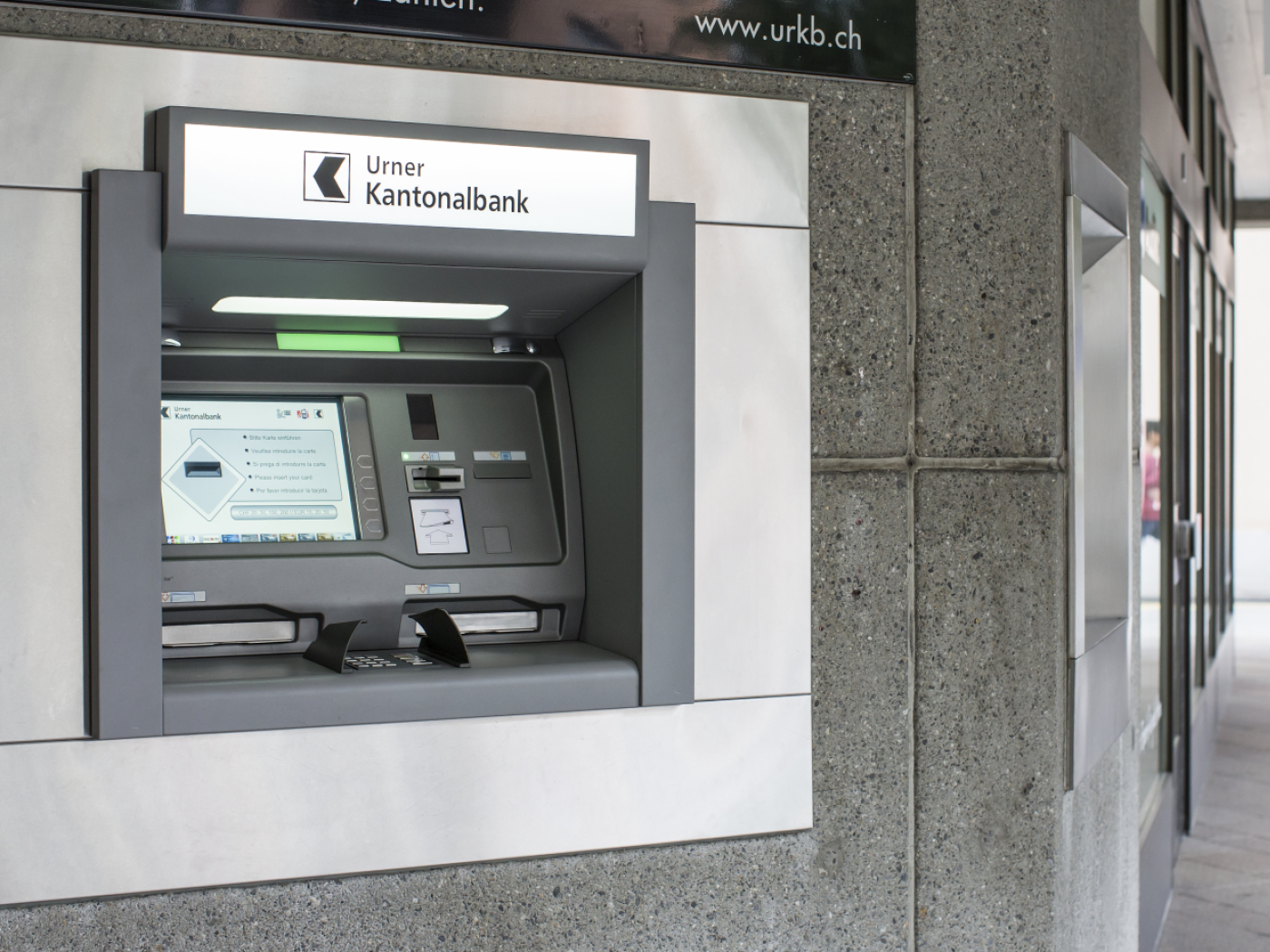
Fewer attacks on Swiss ATMs but their future remains uncertain

Bank ATMs in Switzerland are less prone to attacks by criminals, but their future remains uncertain given the less active use of cash by the population.
+Get the most important news from Switzerland in your inbox
In the first six months, eight attacks with explosives were carried out against cash machines in Switzerland, according to data collected by the AWP agency at the justice ministry. In the whole of 2024, 48 attacks were recorded.
“Similar cases in Germany, the Netherlands, Italy and France show that this is a European concern,” notes a spokesman for the Federal Office of Police (Fedpol). “But Switzerland is a prime target because of its geographical location and the density of its network of distributors.” This explains the record number of 52 assaults in 2022.
+ Politicians sound alarm over ATM attacks in Switzerland
“After the attack of May 27, 2024, in La Brévine and based on the modus operandi, the protection system was completely revised,” the Neuchâtel Cantonal Bank (NCB) told AWP. The amount of the loot and the budget for the resources used were not disclosed.
But are the machines still needed? “Yes, ATMs still have a role to play, especially in some regions, even if their use is changing,” replied the Jura Cantonal Bank (BCJ). Two new machines have recently been installed in the canton and a third is planned for the end of the year. “We do not see them in opposition to digital solutions, but as a complementary element in an ecosystem of services. The hybrid approach makes it possible to support all customer profiles.”
+ Why the Swiss still like to have cash in hand
For the NCB, too, the future is not all digital. “The public’s reliance on cash was particularly evident during the giant power outage in Spain in May and with the increase in piracy,” it noted.
For their part, the Post Office’s 777 Postomats experienced a 10% drop in transactions in early 2025 compared to the same period in 2024. “We experienced a similar decline in previous years,” the head of communications said. “Despite the current trend, however, the Swiss population still places a lot of trust in cash, compared to the rest of Europe.”
In France, institutions are opting for the collective approach: BNP Paribas, Credit Mutuel, Société Générale and CIC have created a system of shared devices. Similarly, Swiss Post wants to focus on the management of decentralised infrastructures. “We have entered into partnerships with various third-party banks,” the spokesman says, without giving financial details.
For its part, the online bank Revolut will launch its first 50 ATMs in Spain this summer, with a view to European expansion in Germany, Italy and Portugal from 2026. The company has not yet set its sights on Switzerland, however.
Other operators are, however, entering the cash market. Since March, it has been possible to withdraw between CHF20 ($25) and CHF300 at the tills of Aldi Switzerland’s 247 branches. ‘There is a growing demand for simple and affordable solutions for everyday life,” says a press officer at the supermarket chain. The company said it was “very pleased with the launch”. The same offer is in use at other retailers.
Translated from Italian by DeepL/ts
We select the most relevant news for an international audience and use automatic translation tools to translate them into English. A journalist then reviews the translation for clarity and accuracy before publication.
Providing you with automatically translated news gives us the time to write more in-depth articles. The news stories we select have been written and carefully fact-checked by an external editorial team from news agencies such as Bloomberg or Keystone.
If you have any questions about how we work, write to us at english@swissinfo.ch

In compliance with the JTI standards
More: SWI swissinfo.ch certified by the Journalism Trust Initiative




























You can find an overview of ongoing debates with our journalists here . Please join us!
If you want to start a conversation about a topic raised in this article or want to report factual errors, email us at english@swissinfo.ch.